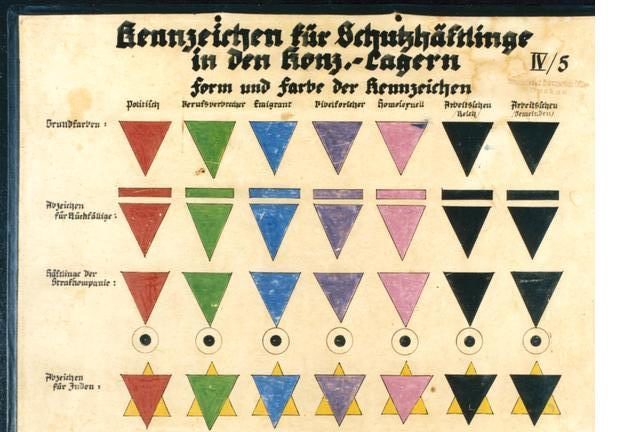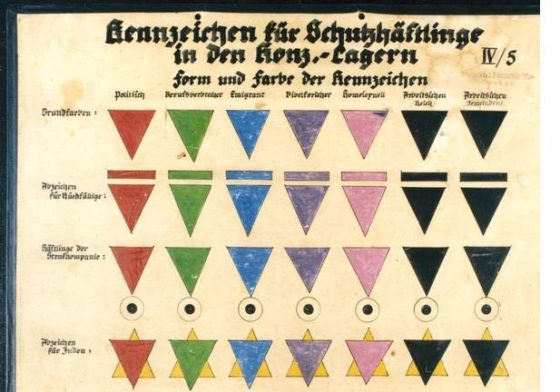New exhibition reveals wartime persecution of Dutch ‘asocials’


At least 2,700 people in the Netherlands were branded as ‘asocial’ during World War II and were transported to concentration camps for being homeless, single mothers and petty thieves, according to a new book and an exhibition at the Groesbeek Vrijheidsmuseum in Limburg.
The exhibition shows that the practice of rounding up those who the authorities at the time considered undesirable and transporting them was not confined to Germany but also happened in the Netherlands.
The homeless, sex workers, addicts, single mothers and minor crooks were forced to wear a black triangle at the camps to denote their ‘asocial’ behaviour. ‘The group also included people who had jobs and who were sent to a camp for a single misdemeanor without any further police investigation or intervention by a judge,’ curator Rense Havinga told broadcaster NOS.
Havinga and his team started their research some two years ago. Very little was known about this group in the Netherlands, he said, but based on documents, he found that some 2,700 people had been deported as ‘asocials’.
In Germany where the practice started in 1933, between 40,000 and 60,000 people were sent to the camps for this reason although much of the documentation was destroyed and the number may be higher still.
‘In Germany these people were persecuted because they did not contribute to the creation of a strong German race. It was really eugenics, the removal of so-called ‘Untermenschen’ from the gene pool,’ Havinga said.
Eugenics may have played a minor role in the Netherlands, particularly in Limburg and Noord_Brabant but in the rest of the country it was simply a way of removing undesirables, Havinga said. ‘The logical explanation is that this method didn’t involve much paperwork and no judges were involved. It was in fact an easy way of getting rid of people.’
1950s
This is the first study to highlight the plight of a group whose troubles weren’t over when the war ended. Shortly after, hundreds of poverty stricken Rotterdammers were herded into rehabilitation camps in Drenthe and Overijssel where they were forced to hand in their wages and the women were made to sew and raise their children under strict supervision. This continued until well into the 1950s.
The personal stories of the people who were deported and died in the concentration camps show that words ‘stigmatise, dehumanise and cover up inhuman measures’, a problem that is still present in our society,’ Havinga said.
The Black Triangle, the history of the persecution of the ‘asocials’ is on until October 2 at the Vrijheidsmuseum in Groesbeek.
Thank you for donating to DutchNews.nl.
We could not provide the Dutch News service, and keep it free of charge, without the generous support of our readers. Your donations allow us to report on issues you tell us matter, and provide you with a summary of the most important Dutch news each day.
Make a donation